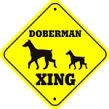 |
Reptile Forum, Reptile Classifieds - CaptiveBred
A site to share your Reptile experiances & ask questions
|
| View previous topic :: View next topic |
| Author |
Message |
Scott W
Site Admin

Joined: 15 Apr 2004
Posts: 13355
Location: London, England.
|
 Posted: Fri Aug 25, 2006 9:25 am Post subject: Two Headed Tortoise Posted: Fri Aug 25, 2006 9:25 am Post subject: Two Headed Tortoise |
 |
|
Rare Two-Headed Tortoise Found in South Africa
Candice Swarts in Cape Town
For National Geographic News
May 30, 2003
Fantasy books are filled with stories about two-headed dragons and two- headed monsters, but who has ever heard of a two-headed tortoise?
This is exactly what NoŽl Daniels, a welder of Wellington, Western Cape, South Africa, discovered when he went into his backyard and found this strange newcomer hatched from an egg amongst his pet tortoises.
Daniels is the owner of seven tortoises, as terrestrial turtles are commonly known. They live with his parrots and pigeons in a dovecote. The strange tortoise's shell is flat underneath and not rounded at the belly as usual, he says.
The two heads are joined separately to a shared body.
"But it seems quite normal and both heads feed on grass, leaves, and softened rabbit pellets," Daniels said. "When it gets scared, however, [the] heads move in different directions as if confused. Sometimes its legs also want to move in different directions. Luckily, it moves quite slowly. There seems to be enough time to figure out which way to go."
The month-old tortoise's shell is about five centimeters (two inches) wide.
Ernst Baard, manager of scientific services of Cape Nature Conservation, an expert on South African tortoises, said that the phenomenon of two heads is extremely rare. To his knowledge, it is only the second reported case of its kind in South Africa in over 20 years. The other one was discovered in the early 1980s.
Baard said that the tortoise might be the product of a genetic deviation during the development stage of the embryo.
He believes that the tortoise has a better chance of survival in captivity than in the wild. "With proper feeding and love it's chances of survival [are] fairly good. However, I am not so sure if it will mature completely."
Baard is almost 100 percent sure that it is an angulate tortoise, which is commonly found in South Africa. He said he would like to examine the animal physically to confirm this and find out more about the phenomenon of its two heads.
Le Fras Mouton, professor in the department of zoology at the University of Stellenbosch, Western Cape, agreed that it could be an angulate tortoise (Chersina angulata). Mouton, a reptile expert, said that he has heard of two-headed lizards, but never of two-headed tortoises
Margaretha Hofmeyr, head of the Chelonian Biodiversity and Conservation Program at the University of the Western Cape, concurred that from the photo the juvenile two-headed animal appears to be an angulate tortoise. The program she directs is to study the diversity and biology of southern Africa's chelonians (tortoises and turtles).
The angulate tortoise seldom grows bigger than 22 centimeters (eight or nine inches), and has a lengthened straw-colored shell with somewhat raised shields that are black in the middle and on the sides. The tortoise evidently doesn't like to be picked up, and will often empty its bladder on a human handler in what may be an attempt to defend itself.
South Africa, which covers less than one percent of the Earth's total land surface, is widely renowned for its rich diversity of fauna and flora (see links below). Of the 43 species of tortoises worldwide, 13 can be found in South Africa, ten of them in the Western Cape.
The endangered geometric tortoise (click on the Turtle Survival Alliance link below for a list of the world's 25 most threatened turtles), is endemic, or unique to the Western Cape.
Candice Swarts is a journalist working for Die Burger, a daily newspaper in Cape Town, South Africa
_________________

Please DO NOT pm orders for reptiles, send email instead scott@captivebred.co.uk |
|
| Back to top |
|
 |
Rootbeer
I'm new here...

Joined: 29 Dec 2006
Posts: 11
|
 Posted: Sat Jan 06, 2007 12:43 am Post subject: Posted: Sat Jan 06, 2007 12:43 am Post subject: |
 |
|
| Awesome! Very cool! |
|
| Back to top |
|
 |
|
|
You cannot post new topics in this forum
You cannot reply to topics in this forum
You cannot edit your posts in this forum
You cannot delete your posts in this forum
You cannot vote in polls in this forum
|
Powered by phpBB © 2001, 2005 phpBB Group
|




